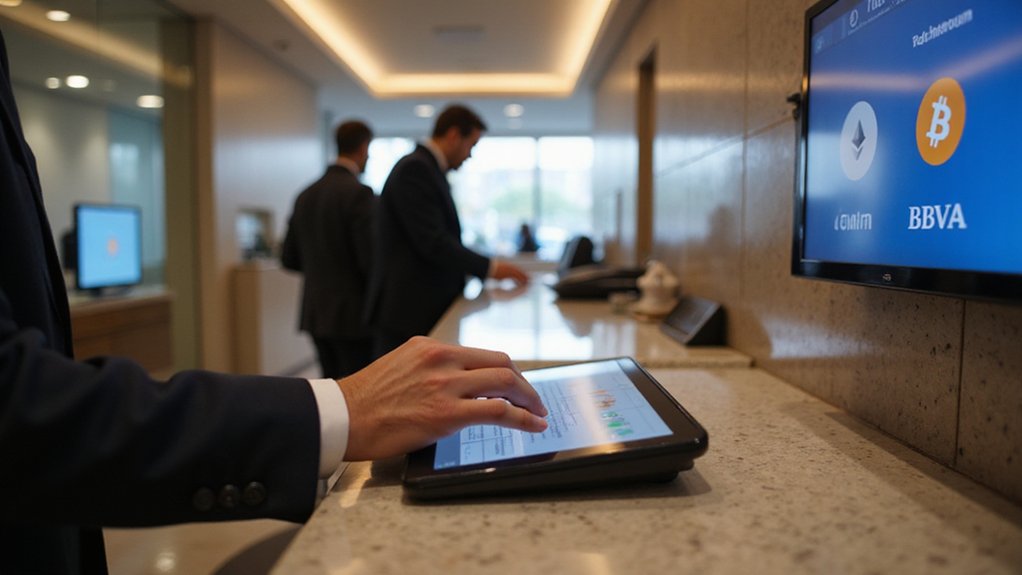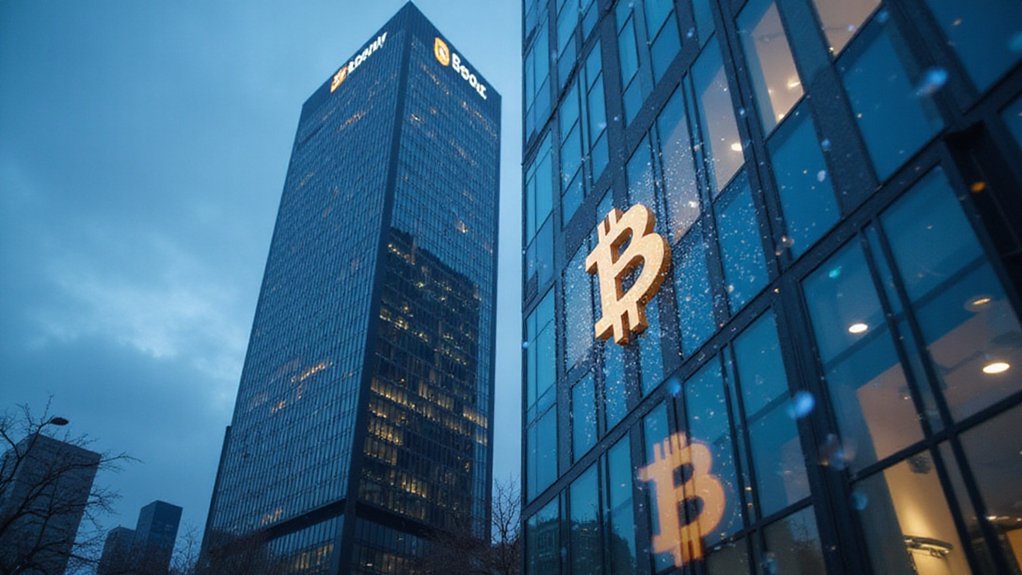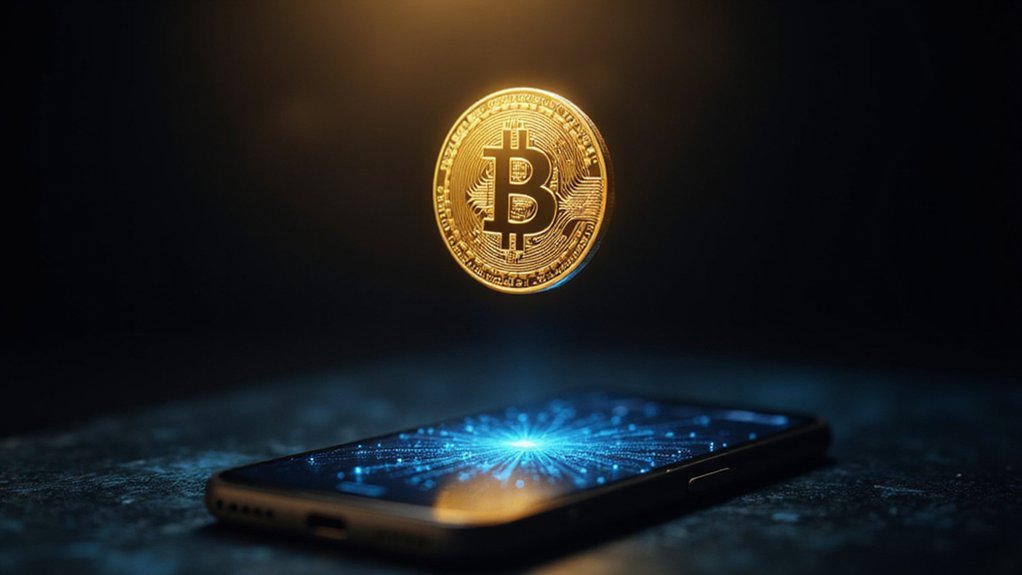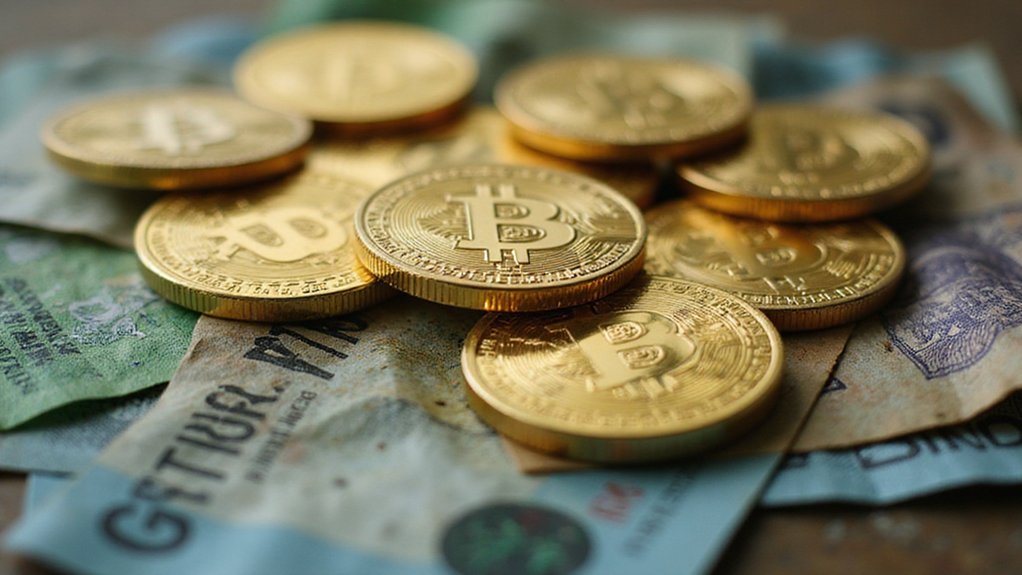A major European bank has decided that the cryptocurrency revolution requires not just observation from the sidelines but active participation—and BBVA has launched Bitcoin and Ethereum trading and custody services directly through its mobile app for Spanish retail customers.
The integration represents a fascinating departure from the traditional banking approach of cautiously eyeing digital assets while muttering about regulatory uncertainty. BBVA’s service operates entirely within its existing mobile ecosystem, allowing customers to buy, sell, and store crypto assets alongside their conventional banking activities—a convergence that would have seemed preposterous to bank executives just five years ago.
A convergence between traditional banking and cryptocurrency that would have seemed preposterous to executives just five years ago.
What makes this development particularly significant is the regulatory framework underpinning it. The service launched following proper filings with Spain’s CNMV and operates under the EU’s MiCA regulation, which provides standardized legal requirements for crypto assets across member states. This regulatory alignment suggests that BBVA isn’t merely testing waters but positioning itself within a structured legal environment that acknowledges crypto’s legitimacy.
The bank’s approach differs markedly from competitors who typically direct customers to external exchanges (with all the attendant security concerns and user experience friction that entails). Instead, BBVA offers direct trading capabilities for Bitcoin and Ethereum through its app, backed by custody services that leverage the bank’s existing security infrastructure.
Customers can now manage both traditional euros and digital assets within the same interface—a level of integration that transforms crypto from an alternative investment into another asset class. This represents BBVA’s third market expansion for digital assets services, following earlier launches in Switzerland and Turkey.
Significantly, BBVA explicitly states it provides no investment advice on crypto assets, leaving transaction decisions entirely to customers. This disclaimer, while legally prudent, effectively positions the bank as a sophisticated vending machine for digital assets rather than a financial advisor—a distinction that protects the institution while placing full responsibility on retail investors maneuvering Bitcoin’s notorious volatility.
The service’s availability to all Spanish retail customers of legal age through the BBVA app represents a significant accessibility milestone. By eliminating the need for separate exchanges, complex wallet management, and byzantine verification processes, BBVA has fundamentally democratized crypto access for mainstream banking customers. Unlike DeFi protocols that require users to manage private keys and navigate complex smart contracts, BBVA’s centralized approach provides the security infrastructure that traditional banking customers expect. The bank joins eight financial institutions that have applied for virtual asset service provider registration in Spain, reflecting the growing institutional appetite for crypto services.
Whether this proves prescient or premature depends largely on how successfully the bank manages the inevitable customer service challenges that accompany crypto’s characteristic price swings.









